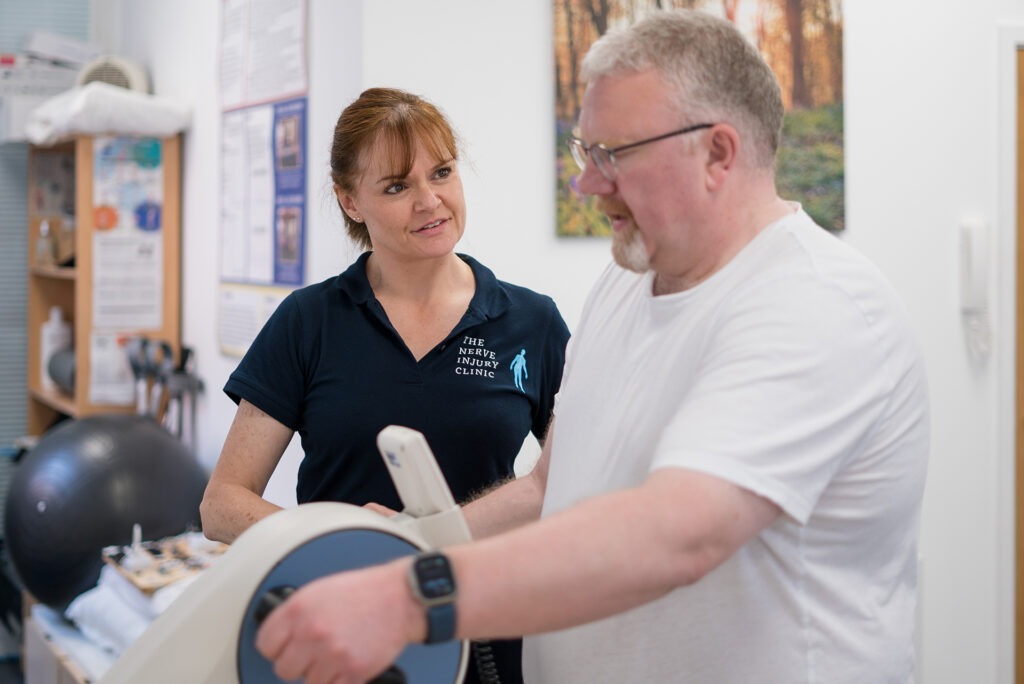
Peripheral Nerve Injury Physiotherapy
The Nerve Injury Clinic specialises in physiotherapy for all types of peripheral nerve injury and is renowned as a national centre of excellence.
Peripheral nerve injury physiotherapy focuses on the rehabilitation of individuals who have sustained damage to the peripheral nerves, which are the nerves outside of the brain and spinal cord. These nerves are responsible for transmitting signals between the central nervous system and the rest of the body, including muscles, skin, and organs. When peripheral nerves are injured, it can result in symptoms such as weakness, loss of sensation, pain, and impaired motor function.
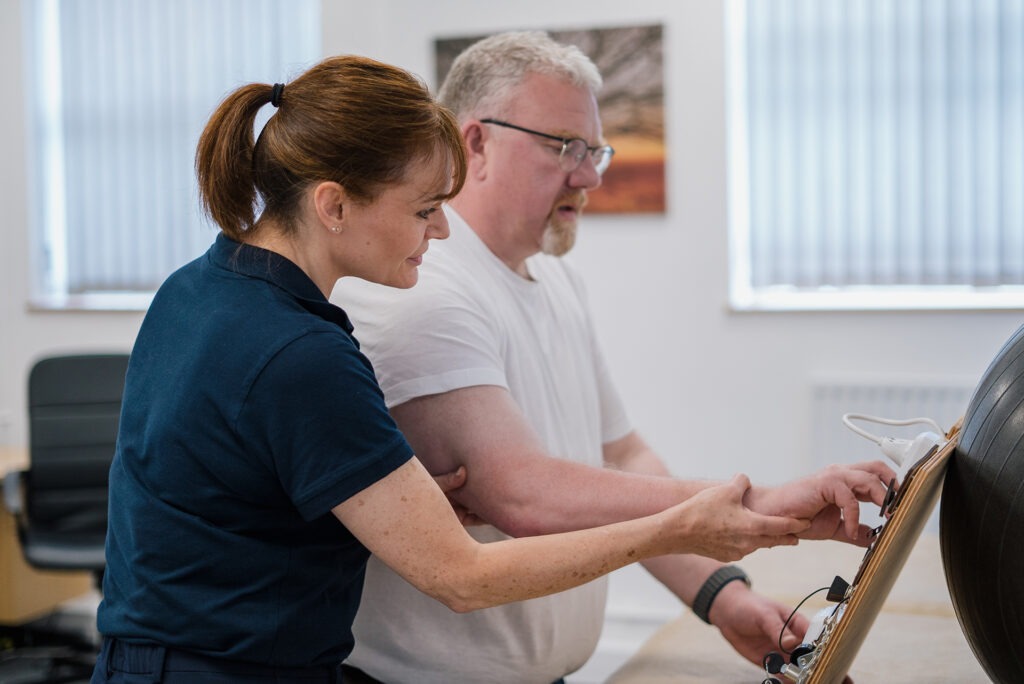
Common causes of peripheral nerve injuries include:
- Trauma: Physical injuries such as fractures, lacerations, or compression of nerves.
- Surgical Complications: Nerves may be accidentally damaged during surgery.
- Infections: Some infections can lead to inflammation or damage to the peripheral nerves.
- Repetitive Strain: Overuse injuries, such as carpal tunnel syndrome, can compress or damage nerves.
- Systemic Conditions: Diabetes and autoimmune diseases can cause peripheral neuropathy.
- Tumours, Chemotherapy and Radiotherapy: Benign and cancerous tumours as well as cancer treatments can cause localised nerve damage.
- Anatomical abnormalities: A person’s anatomy can be mildly different and cause pressure on nerves, such as Thoracic Outlet Syndrome. Neck and back disc bulges can compress spinal nerve roots causing nerve inflammation and damage.
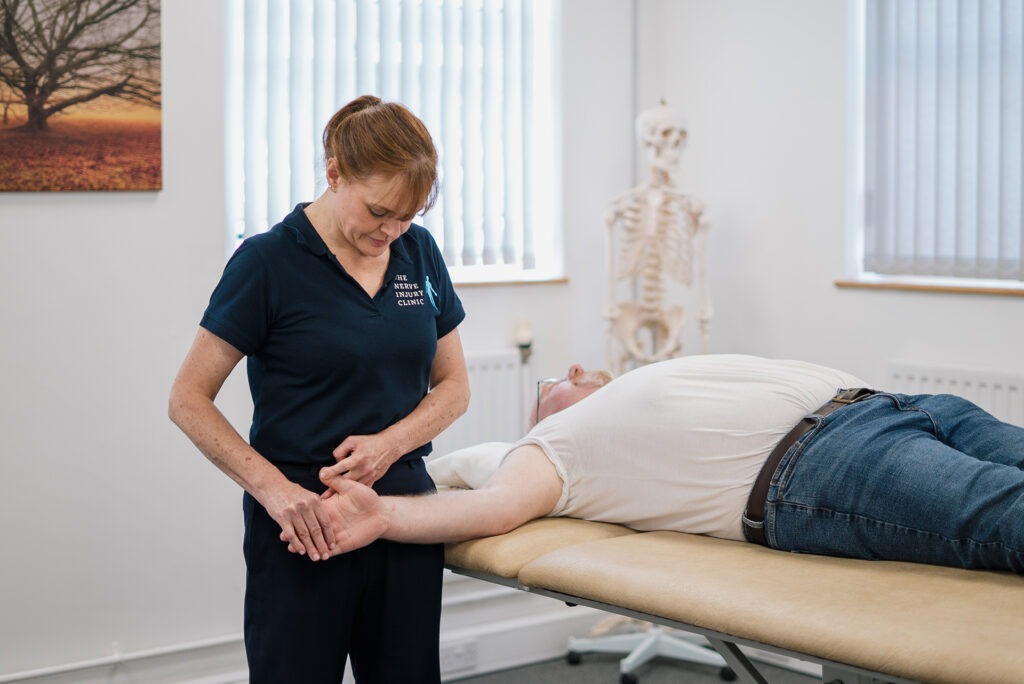
Goals of Peripheral Nerve Injury Physiotherapy
The primary objectives are to promote recovery, restore function, and reduce pain or discomfort. Specific goals include:
- Restoring Muscle Strength: Helping the patient regain strength in the muscles affected by the nerve injury.
- Improving Sensation: If sensory nerves are involved, therapy can help improve or adapt to altered sensation.
- Enhancing Range of Motion: Preventing stiffness and muscle shortening and maintaining or improving joint mobility.
- Pain Management: Techniques such as electrical stimulation, soft tissue mobilisation, acupuncture and exercises to relieve nerve pain.
- Functional Training: Focusing on daily activities and movement patterns to improve independence.
- Preventing Muscle Wasting: If the injury has led to muscle atrophy (wasting), targeted exercises can prevent further loss of muscle mass.
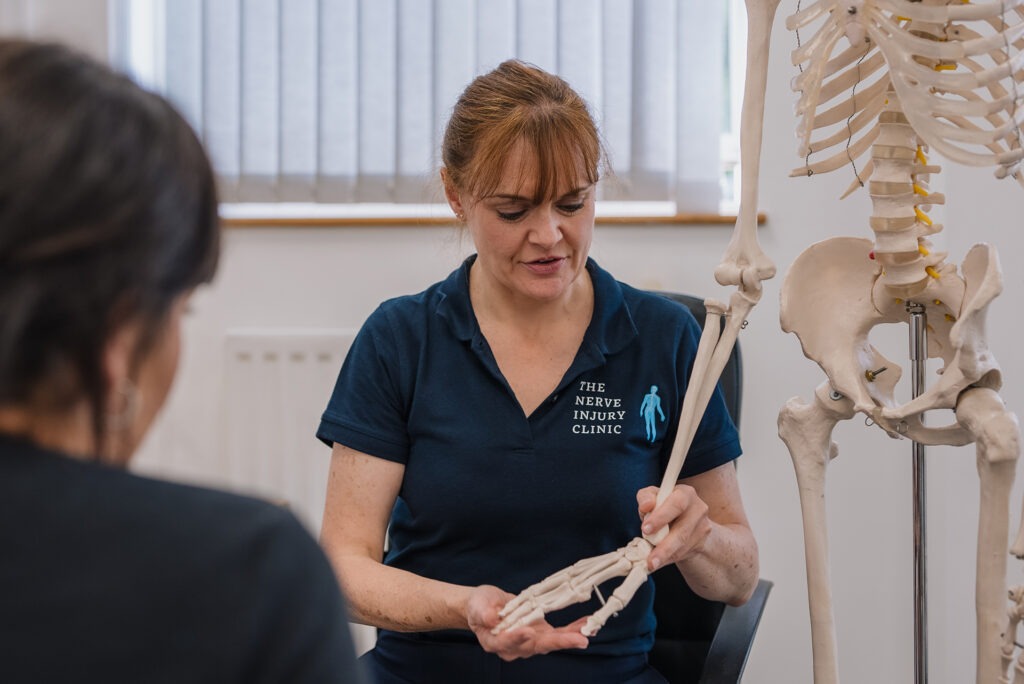
Techniques Used in Peripheral Nerve Injury Physiotherapy
- Neurodynamic Mobilisation: Techniques that involve moving the soft tissues that surround nerves and the nerves themselves to reduce tension and improve mobility.
- Strengthening Exercises: To rebuild muscle function around the affected area.
- Sensory Re-education: Techniques to help patients adapt to changes in sensation or improve sensory input.
- Splinting: These devices can be used to protect the injured nerve or correct alignment during recovery.
- Electrical Stimulation: Sometimes used to treat pain and encourage muscle contraction in weakened areas.
- Myofascial Release and Massage: To reduce scar tissue, improve circulation, and relieve muscle tightness.
- Education: Teaching patients how to protect the nerve from further injury and adapt their daily activities.
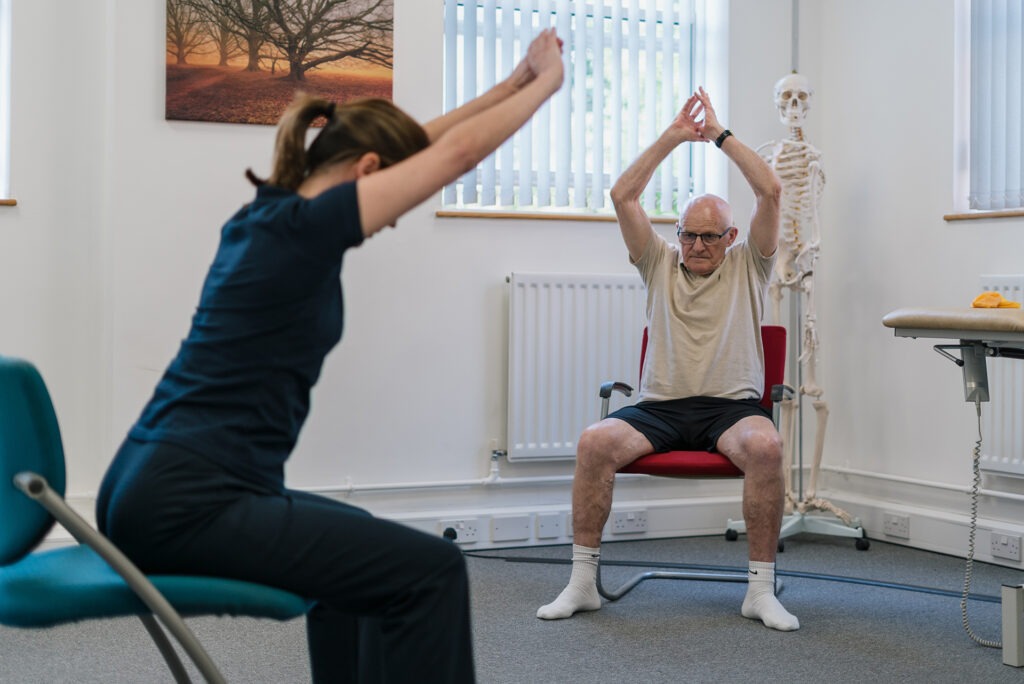
Common Peripheral Nerve Injuries Treated
- Brachial Plexus Injury: Damage to the nerves that control the shoulder, arm, and hand eg brachial neuritis
- Peroneal Nerve Palsy: Injury to the peroneal nerve in the lower leg, causing foot drop and/or numbness.
- Radial Nerve Palsy: Weakness or paralysis of the wrist and hand due to radial nerve injury.
- Sciatic Nerve Injury: Compression or trauma to the sciatic nerve, leading to leg pain and weakness.
- Axillary Nerve Injury: Damage to the shoulder nerve, often from a humerus fracture, causing shoulder weakness.
- Long Thoracic Nerve Injury: This causes shoulder blade winging.
Neurological physiotherapists at The Nerve Injury Clinic tailor the rehabilitation program to the specific nerve injury and the patient’s unique needs, often working closely with doctors or neurologists to ensure comprehensive care.
See what people say about The Nerve Injury Clinic
